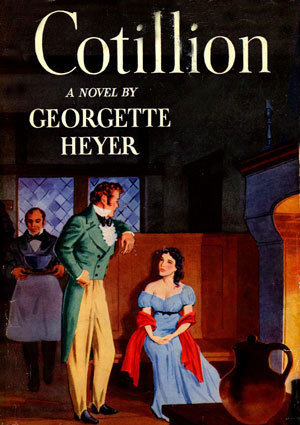

The roman-à-clef novel-writing heroine has become a trope of Regency fiction today, but Heyer may have invented it here. Radcliffe, peppered with caricatures of people she encountered in society during her first London season. Her one solace is writing: she has written an absurd gothic novel in the style of Mrs. But she is afraid of shouting and remonstrating, and she is also an ugly duckling who doesn’t fit in, the child of her father’s first marriage who finds no sympathy or understanding from her father, stepmother, or stepsisters. She is neither beautiful nor accomplished: she is small, thin, awkward in company, and looks her best on horseback, where she is intrepid and nearly fearless. And sadly, he is probably right: not many young women would refuse the Duke of Salford.īut if Sylvester is a story-book hero, Phoebe is anything but a story-book heroine. He has a shortlist of candidates (which he presents to the appalled duchess) and no doubt that any one of them is his for the asking. Darcy: to see first not his selfishness, but his kindness to his servants, his cheerful undertaking of duty above pleasure, his childhood memories of playing across the vast demesne visible from a window? He visits his invalid mother, with whom he has a relationship based in mutual and genuine affection, and here we learn the difficulty: he has never been in love, but has decided to take a wife. How delightful would it have been to be introduced thus to Mr. The novel opens with a leisurely exposition showing Sylvester in his natural setting: at his country seat.

This rank elevates the story from Austen’s genteel world to Heyer’s mostly aristocratic one, firmly in the London social scene as well as country house drawing rooms. And Heyer heaps the (dis)advantages on Sylvester to the limits of possibility: Sylvester is a duke. The novel explores how a young man in such circumstances could be anything other than arrogant. Darcy, is fully developed, arguably more so than his literary progenitor. Not that this is fan fiction: Sylvester’s character, though clearly inspired by Mr. Set in 1817-18, for Austen aficionados it provides not only engaging characters, period manners, and lively dialogue, but what could be considered an exploration of one of Austen’s most beloved characters: Mr. Sylvester, or the Wicked Uncle is one of Georgette Heyer’s most delightful novels in the genre she invented. He needs an outspoken heroine to teach him a lesson about his self-consequence and pride. He was given good principles, but left to follow them in pride and conceit but to be fair, he is no more villainous than any other young man of large fortune used to getting his own way. Our hero is 28, wealthy, with vast estates and dependents, and head of his house, having come into his inheritance at a young age.


 0 kommentar(er)
0 kommentar(er)
